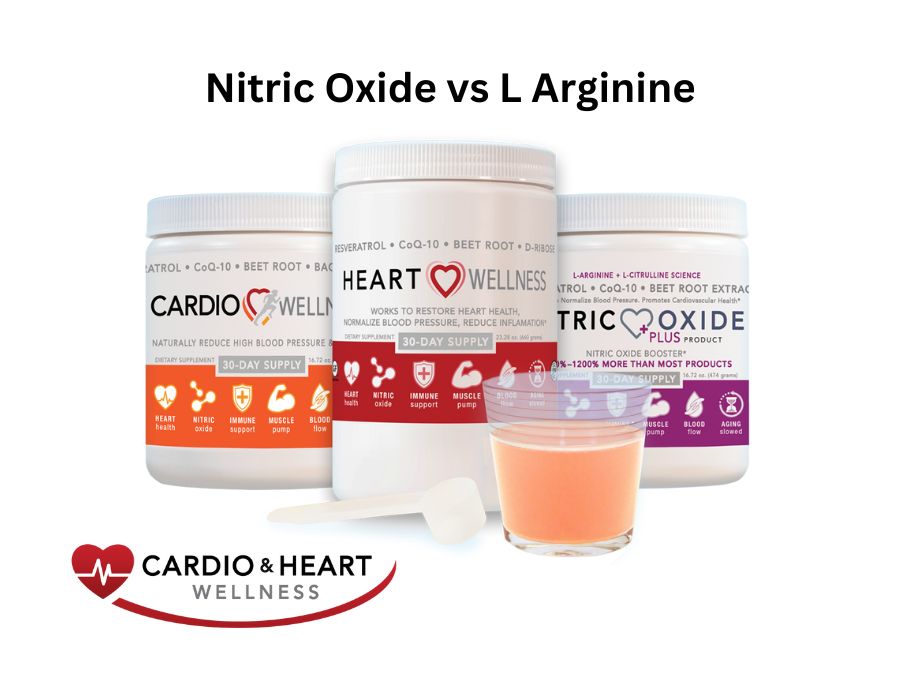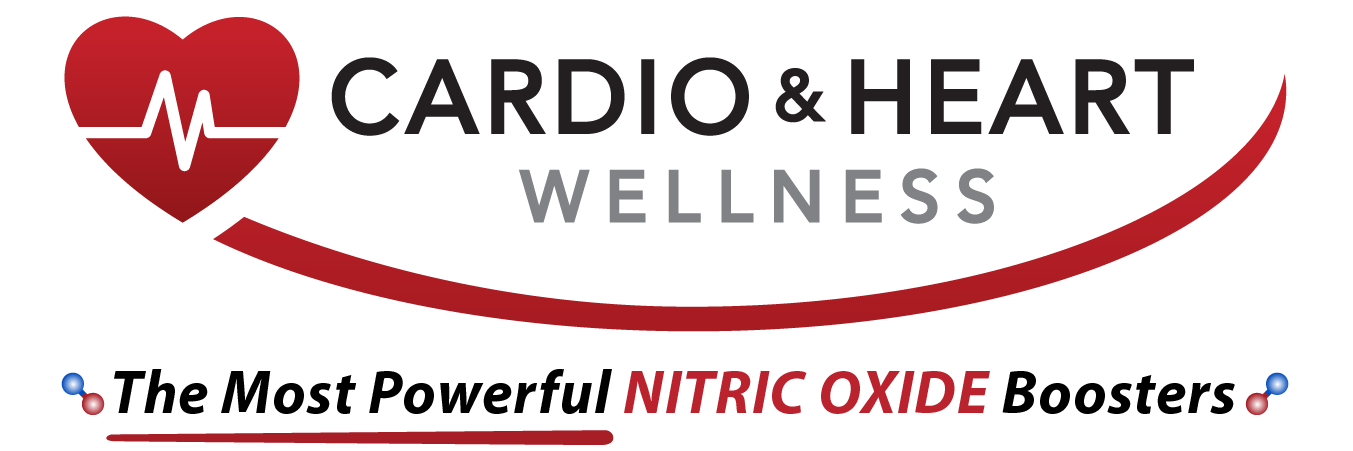
Navigating the complex world of supplements and their impact on health can often be a daunting task. Among the myriad of compounds and their interactions, two that stand out in the realm of cardiovascular health are L Arginine and Nitric Oxide. These two elements, though closely related, serve distinct roles in our bodies. In this comprehensive exploration, we delve into the nuances of L Arginine and Nitric Oxide, unraveling their differences, synergies, and the pivotal roles they play in maintaining heart health and overall well-being. Whether you’re a health enthusiast, someone concerned about cardiovascular health, or simply curious about these compounds, this guide aims to clarify, inform, and enlighten.
The Critical Role of L Arginine in the Body
L Arginine, beyond its role in Nitric Oxide synthesis, is an essential amino acid with multiple health benefits. It’s not just a building block for proteins; it’s also involved in several critical bodily functions.
- Protein Synthesis and Muscle Health: L Arginine is vital for building muscle and rebuilding tissue. This makes it particularly important for athletes or those recovering from injuries.
- Immune System Support: It plays a role in supporting the immune system, helping your body fight off infections and heal.
- Hormone Production: L Arginine aids in the production of growth hormone and insulin, which are essential for growth and glucose metabolism.
- Detoxification: It helps in detoxifying the body by helping the liver process ammonia, a waste product of protein digestion.
This section highlights the multifaceted roles of L Arginine, setting the stage for understanding its specific relationship with Nitric Oxide.
Nitric Oxide – The Unsung Hero of Cardiovascular Health
Nitric Oxide, though less known than cholesterol or blood pressure, is a superstar in maintaining cardiovascular health. Here’s why:
- Vasodilation and Blood Flow: As a vasodilator, Nitric Oxide is crucial for regulating blood flow and blood pressure, ensuring that oxygen-rich blood reaches every part of your body efficiently.
- Preventing Plaque Formation and Blood Clots: It helps prevent the formation of plaques in the arteries and reduces the risk of blood clots, which are primary causes of heart attacks and strokes.
- Regulating Blood Pressure: By relaxing and widening blood vessels, Nitric Oxide plays a direct role in lowering high blood pressure, a major risk factor for heart disease.
- Improving Exercise Performance: For athletes, Nitric Oxide can enhance performance by improving blood flow and oxygen delivery to muscles.
This section underscores the importance of Nitric Oxide in various aspects of heart and overall health.
L Arginine and Nitric Oxide – A Synergistic Relationship
Understanding the synergy between L Arginine and Nitric Oxide is key to appreciating their roles in cardiovascular health. Here’s how they work together:
- Biochemical Conversion: L Arginine is converted into Nitric Oxide through the action of an enzyme called Nitric Oxide Synthase (NOS). This process is not just a simple conversion; it’s a complex biochemical reaction essential for producing Nitric Oxide in the right amounts.
- Enhancing Nitric Oxide Levels: By increasing L Arginine levels in the body, either through diet or supplements, you can indirectly boost Nitric Oxide production. This is particularly beneficial for individuals whose bodies don’t produce enough Nitric Oxide naturally.
- The Role of Antioxidants: The stability and effectiveness of Nitric Oxide are also influenced by the presence of antioxidants. Antioxidants help to preserve Nitric Oxide, allowing it to function effectively in the body. This is why a diet rich in antioxidants, combined with L Arginine supplementation, can be particularly effective.
- Impact on Cardiovascular Health: The increased production of Nitric Oxide through L Arginine supplementation can lead to better blood flow, reduced blood pressure, and overall improved heart health. This is especially significant for those at risk of or suffering from cardiovascular diseases.
This section highlights the critical interplay between L Arginine and Nitric Oxide and its implications for heart health.
Dietary Sources of L Arginine and Nitric Oxide Boosters
While supplements are a popular way to increase L Arginine and Nitric Oxide levels, it’s also important to know which foods can naturally boost these compounds.
- Rich Sources of L Arginine: Foods like turkey, chicken, pork loin, pumpkin seeds, soybeans, peanuts, and spirulina are excellent sources of L Arginine. Including these in your diet can naturally enhance your L Arginine intake.
- Foods that Boost Nitric Oxide: Beets, garlic, meat, dark chocolate, leafy greens, citrus fruits, pomegranates, nuts, and seeds are known to boost Nitric Oxide levels. Many of these foods contain nitrates, which the body can convert into Nitric Oxide.
- Balanced Diet for Heart Health: Incorporating a variety of these foods into your diet can help maintain optimal levels of L Arginine and Nitric Oxide. A balanced diet, rich in fruits, vegetables, lean proteins, and whole grains, supports overall cardiovascular health.
This section provides practical advice on how to naturally increase L Arginine and Nitric Oxide levels through diet.
L Arginine and Nitric Oxide in Clinical Studies
The relationship between L Arginine, Nitric Oxide, and heart health isn’t just theoretical. Numerous clinical studies have provided evidence of their benefits. Here’s a look at some key findings:
- Improvement in Blood Pressure: Research has shown that L Arginine supplementation can lead to significant reductions in blood pressure, particularly in individuals with hypertension or pre-hypertension.
- Enhanced Cardiovascular Function in Athletes: Studies involving athletes have demonstrated that increased Nitric Oxide production, facilitated by L Arginine intake, can improve exercise efficiency and cardiovascular performance.
- Benefits for Heart Disease Patients: For patients with heart disease, L Arginine supplementation has been linked to improved vascular function and reduced symptoms of angina.
- Impact on Endothelial Health: The endothelium, the inner lining of blood vessels, plays a crucial role in cardiovascular health. L Arginine’s role in Nitric Oxide production has been found to improve endothelial function, which is often compromised in heart disease.
- Long-Term Effects and Safety: Long-term studies indicate that with proper dosage, L Arginine supplementation is safe and can provide sustained benefits for heart health.
This section underscores the scientific backing for the use of L Arginine and Nitric Oxide in promoting heart health, lending credibility to their therapeutic potential.
Understanding the Limitations and Risks
While the benefits of L Arginine and Nitric Oxide are significant, it’s also important to understand their limitations and potential risks.
- Not a Standalone Treatment: These supplements should not replace prescribed medications or treatments for heart disease. They are most effective when used as part of a comprehensive health plan.
- Possible Side Effects: High doses of L Arginine can cause gastrointestinal discomfort, nausea, and headaches in some individuals. It’s important to follow recommended dosages and consult with a healthcare provider.
- Interactions with Medications: L Arginine can interact with certain medications, such as blood pressure drugs and nitrates for heart disease, potentially causing adverse effects.
- Individual Variability: Not everyone responds to L Arginine supplementation in the same way. Factors like age, overall health, and specific medical conditions can influence its effectiveness.
This section provides a balanced view, acknowledging that while L Arginine and Nitric Oxide have many benefits, they are not without their limitations and risks.
Conclusion
In conclusion, the relationship between L Arginine and Nitric Oxide is a fascinating and vital aspect of cardiovascular health. By understanding how these compounds work individually and together, we can better appreciate their roles in maintaining a healthy heart. Remember, a holistic approach to health, encompassing a balanced diet, regular exercise, and appropriate supplementation, is key to cardiovascular wellness.
Stay informed, stay healthy!
Bob Weeks


